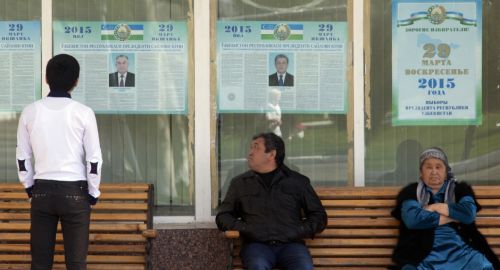AKIPRESS.COM -  The figure of the incumbent dominated a political landscape without genuine opposition in the 29 March presidential election in Uzbekistan, election observers sent by the OSCE Office for Democratic Institutions and Human Rights (ODIHR) said in a statement issued March 30.
The figure of the incumbent dominated a political landscape without genuine opposition in the 29 March presidential election in Uzbekistan, election observers sent by the OSCE Office for Democratic Institutions and Human Rights (ODIHR) said in a statement issued March 30.
In this environment, persistent legal and organizational shortcomings of the electoral process remained unaddressed, the statement added.
“Despite a clear constitutional limit of two consecutive presidential terms, the Central Election Commission registered the incumbent as a candidate. This was in contravention of the rule of law and raises doubts about the Commission’s independence,” said Tana de Zulueta, head of the ODIHR limited election observation mission.
The possibility to stand as an independent candidate has been abolished since the last election, and a number of provisions in the legal framework for elections contravene OSCE commitments and other international obligations and standards for democratic elections. Although some previous OSCE/ODIHR recommendations have been addressed in regulations, fundamental freedoms of association and expression remain effectively curtailed, the statement said.
“While most of the campaign was premised on applying the legal provisions for equal treatment of all contestants, including with regard to access to media and holding meetings, the rigidly restrained media gave the incumbent a clear advantage,” de Zulueta said. “The policies and achievements of the current president were never questioned by the other participants.”
The Constitution provides for freedom of expression, yet the legislation sets stringent limits to the freedom of reporting, which leads to self-censorship, and the media environment is not conducive to providing voters with alternative views to make an informed choice, the observers said.
Mission media monitoring showed that the state-owned media granted candidates ample free-of-charge airtime and print space, as foreseen by law, but both state-owned and private media dedicated a large portion of coverage to the incumbent’s institutional activities, giving him a clear advantage.
Voter lists were compiled in a variety of ways throughout the country, and inconsistency in the method of compilation put the accuracy of voter lists in doubt. In the absence of a unified voter register, no crosschecks for multiple entries or for the inclusion of those residing abroad are possible, the statement said.
The Central Election Commission accredited more than 300 international observers, while political parties deployed more than 35,000 representatives on election day. However, despite previous recommendations and at odds with OSCE commitments, the legal framework does not provide for observation by citizen organizations.
